I just watched "Under the Volcano" at the EU Film Festival so I can finally do a rundown of the 18 films submitted from Eastern Europe. I've seen two-thirds (12 of 18) of the nominees.
Number of Countries Participating this year: 18
Number of Countries That Have Participated in the
Past: 24
Who’s Missing?: This is the lowest number of
Eastern European submissions since 2011, with AZERBAIJAN, BELARUS, KOSOVO,
MACEDONIA, MOLDOVA and RUSSIA failing to send films.
MACEDONIA announced in August that they didn’t have
any suitable entries but they’ll almost certainly be back next year. BELARUS
and RUSSIA haven’t sent any films since the invasion of Ukraine.
The biggest surprise for me was MOLDOVA which sent
films to the Oscars the past two years and had quite a competitive process last
year with four films in contention, including the unsuccessful "Varvara" which I really enjoyed. 2024 was a strong year for Moldova's tiny film
industry and they had a number of good candidates so I’m not sure what
happened. KOSOVO failed to enter for the second year in a row, and there
was a scathing editorial in the local press condemning the Kosovo
Cinematography Center (QKK) for failing to even launch a call for submissions
this year, and for trying to claim the Albanian entry (Kosovo co-production
“Waterdrop”) as an unofficial Kosovar entry. Kosovo was shortlisted for the
Oscar in 2022 for “Hive”. I was disappointed (but not surprised) that AZERBAIJAN
also failed to send a film. They’ve now sent only three films in the past
ten years, most recently in 2022.
FRONTRUNNERS:
1. ![]() LATVIA- “Flow” (Letterboxd: 4.0)
LATVIA- “Flow” (Letterboxd: 4.0)
2. ![]() CZECH REPUBLIC -
“Waves” (4.0)
CZECH REPUBLIC -
“Waves” (4.0)
Both of these films have a good shot at the shortlist, although Latvia is way ahead.
"Flow", a beautifully animated film about various animals confronting a flood in a post-human (maybe?) world, contains no dialogue and is one of the Oscar frontrunners for Best Animated Feature. My opinion is that its highly unlikely to be nominated in International Feature but it's very likely to make the Final 15. The animation in "Flow" is beautiful (especially the depiction of the water) and the film is a wholly original story. While an animated fiction feature has never been nominated in this category ("Flow" and "Waltz with Bashir" were documentaries), "Flow" has been getting a lot of buzz since its Cannes debut and is now peaking thanks to a U.S. release and a Golden Globe nomination. Most people find the film charming, despite some slow spots...and there's nothing like it among the other 84 contenders (only Pakistan and Latvia sent animated films).
So- full disclosure - I'm not a huge fan of historical dramas....but the CZECH REPUBLIC love them....they've sent them six years in a row (I liked "Il Boemo"). But "Waves" is a very well-made film and it has some of the best critical reviews on the list. The film tells the true story of courageous Radio Czechoslovakia journalists who attempt to increase the limited space for press freedom in the 1960s and end up taking over the station to report on the 1968 Soviet invasion during the Prague Spring. I felt "Waves" was a good movie but that it would resonate far more with locals than with international audiences. Critics reviews seem to show that I am wrong....most people have loved the film. The Czech Republic has been shortlisted twice for "Painted Bird" and "Charlatan"....two creaky historical dramas that nobody really liked. "Waves" is miles better than either one of these and "Waves" is really on the bubble. It could easily get that 15th and final spot....or finish 16, 17 or 18th.....
DARK HORSES:
3. ![]() ROMANIA- "Three Kilometres to the End of the World" (3.4)
ROMANIA- "Three Kilometres to the End of the World" (3.4)
4. ![]() HUNGARY - “Semmelweis” (3.2)
HUNGARY - “Semmelweis” (3.2)
5. ![]() GEORGIA- "The Antique" (approx. 3.4)
GEORGIA- "The Antique" (approx. 3.4)
6. ![]() BOSNIA-HERZEGOVINA- "My Late Summer" (approx. 3.2)
BOSNIA-HERZEGOVINA- "My Late Summer" (approx. 3.2)
More than Czech Republic or Latvia, I'm rooting for the far superior LGBT film from ROMANIA. "Three Kilometers" is the first LGBT-themed film from Romania, and one of two LGBT films this year from the more conservatives areas of Eastern Europe (also see Croatia). Set in the 1980s, "Three Kilometres" is a wonderful drama about a closeted gay teenager living in a tiny Romanian village who is the victim of a hate crime. If the film was made in the United States, this would be a "good versus evil" story about confronting homophobia....or possibly a mystery as we try to unmask and convict the perpetrator. But that's not what this film is. It's a film about moral dilemmas, about family and religion and corruption. It's actually very similar to the equally wonderful submission from Albania (see below). I had the pleasure of seeing the film with the director in attendance which added even more layers to the story. Romania is deserving....but will enough people see it?
HUNGARY has sent "Semmelweis", a 19th century medical biopic that feels very much like it was made in the Hollywood mold, from the casting of a gorgeous young actor in the lead role (apparently not what the real Dr. Semmelweis looked like), and the addition of romantic subplots and evil rival physicians. It has very high production values, an Amazon distribution and probably would have been nominated it was submitted in the 1980s. But there's something wrong that I can't put my finger on. It all feels a little overly packaged and reviews have been mixed outside of Hungary. If voters are lazy, it could get a shortlist spot like the aforementioned "Charlatan"....but without a premier director, I believe its out of luck.
I haven't been able to find the films from GEORGIA and BOSNIA but I believe they're likely too small to make it. Georgia sent "The Antique", an anti-Putin drama (that's very significant is you've been reading the news from Georgia this year, in which "people power" demonstrations are trying to challenge the pro-Russian government). I've heard this is a really great film, focusing on the illegal political deportations of Georgians from Russia in 2006. But Americans won't know much about this incident, and a lot of people seem to characterize the film as "too cold". This is one of those films that would place higher if voters were required to see more films. As for Bosnia, the presence of Oscar winner Danis Tanovic behind the camera will definitely get a few more people to watch it. "My Late Summer", which opened the 2024 Sarajevo Film Festival, is a gentle village comedy-drama about a woman who travels to a Croatian island to claim an inheritance. Everyone I've heard from says it's a nice little film....but not much more than that. I love Balkan humor and of the eight Eastern Euro films I haven't seen yet, it's the one I really do want to see.
MIDDLE OF THE PACK:
7. ![]() CROATIA - “Beautiful Evening, Beautiful Day" (approx. 3.5)
CROATIA - “Beautiful Evening, Beautiful Day" (approx. 3.5)
8. ![]() ALBANIA- “Waterdrop” (approx. 3.2)
ALBANIA- “Waterdrop” (approx. 3.2)
9. ![]() LITHUANIA- "Drowning Dry" (3.4)
LITHUANIA- "Drowning Dry" (3.4)
10. ![]() POLAND- "Under the Volcano" (3.3)
POLAND- "Under the Volcano" (3.3)
I'm so sad to rank ALBANIA so low because this corruption drama is one of my Top 5 worldwide. When her beloved son is falsely accused of rape, a woman with a powerful position in the mayor's office uses her influence and ties to make sure her son stays out of jail.....but soon learns he may or may not be innocent. It's a mystery, it's a thriller and it should be on the shortlist....but nobody is talking about it.
LITHUANIA's "Drowning Dry" is a challenging drama that uses time jumps and a non-linear format to tell the story of two sisters, their husband and their two children on vacation at a rural dacha. The story is told in bits and pieces which not all critics like. I was a big fan of the same director's similarly structured Oscar submission "Pilgrims", which I felt was clearer and more cathartic. The conclusion is logical....but is not adequately explained. I had to read several reviews and ponder the film before I understood everything.
POLAND's "Under the Volcano" starts off strong, focusing on a middle-class Ukrainian family on vacation in the Canary Islands who find themselves stranded when Russia invades Ukraine on the day they are meant to fly home. The film clearly wants to show the uncertainty of this family living in limbo....but this doesn't almost makes for a clear and meaningful story, as the family aimlessly spends their days wandering around Tenerife. The family (and the film) literally meander and get lost....and the audience eventually loses all interest. There are clear efforts to link the plight of the Ukrainian migrants, who find themselves welcomed by their sympathetic Spanish hosts, with those from Africa....but this is done surprisingly pooly.
Lastly we have Croatia's "Beautiful Evening, Beautiful Day". Croatia had one of their best film years ever in 2024 so it was surprisingly when they selected the completely unknown and unscreened "Beautiful Evening" as their Oscar candidate. I've heard this graphic B+W LGBT historical drama set during the Communist era is pretty amazing.....but the film has less than zero buzz, and LGBT movies have an uphill climb in this category.
BETTER LUCK NEXT YEAR:
11. ![]() SLOVAKIA- "Hungarian Dressmaker" (approx 3.3)
SLOVAKIA- "Hungarian Dressmaker" (approx 3.3)
12. ![]() ARMENIA- "Yasha and Leonid Brezhnev" (approx. 3.5)
ARMENIA- "Yasha and Leonid Brezhnev" (approx. 3.5)
13. ![]() SLOVENIA- "Family Therapy" (3.2)
SLOVENIA- "Family Therapy" (3.2)
14. ![]() MONTENEGRO- "Supermarket" (approx. 3.2)
MONTENEGRO- "Supermarket" (approx. 3.2)
Not much to say about these four dark horses, which includes three dark comedies.....Let's take a look alphabetically:
ARMENIA was shortlisted last year for Communist-era comedy "Amerikatsi" which I liked. They've selected another Communist comedy - "Yasha & Leonid Brezhnev" - which beat out "Amerikatsi" for Best Director and Best Screenplay at Armenia's National Film Awards. But "Yasha" is probably this year's most obscure entry from Europe so it faces an uphill battle.
MONTENEGRO also selected an obscure film, namely "Supermarket", a spare 75-minute comedy about a homeless man living in a large supermarket. Montenegro is the smallest country in Eastern Europe and their film industry is correspondingly small. Although I've heard that both of them are cute little films, the two of them have the fewest votes of any European candidates on IMDB and they lack the buzz, critical reviews and profiles required to make the shortlist.
I had high hopes for SLOVAKIA's "Hungarian Dressmaker", about a Hungarian-Christian woman hiding a Jewish neighbor's young son in her barn in Nazi-occupied Slovakia. Slovakia clearly remembers winning the Oscar for "The Shop on Main Street" but "Dressmaker" doesn't rise to that level. It's a fairly standard and unmemorable drama that focuses more on language nationalism than the little boy.
SLOVENIA is another dark comedy that has a much higher profile. But "Family Therapy" is a weird and divisive film that isn't likely to charm AMPAS voters. This "class clash" movie about an upper-class Slovenian family dealing with a mysterious French visitor and a family of poorer Slovenian visitors is just kind of odd. It tries its best to channel Yorthos and Haneke and it has a few charming moments....but doesn't manage to make it.
NO CHANCE IN HELL
15. ![]() SERBIA- "Russian Consul" (approx. 3.5)
SERBIA- "Russian Consul" (approx. 3.5)
16. ![]() UKRAINE- "La Palisiada" (3.3)
UKRAINE- "La Palisiada" (3.3)
17. ![]() ESTONIA- "8 Views of Lake Biwa" (3.3)
ESTONIA- "8 Views of Lake Biwa" (3.3)
18. ![]() BULGARIA- "Triumph" (3.3)
BULGARIA- "Triumph" (3.3)
Let's start with the three films I have seen, which are simply way way WAY out of their league in this category. All of them should have picked something else. BULGARIA picked last-minute release Communist era "Triumph". I had high hopes for this. I love dark comedies and I picked "Glory" (by the same directors) as one of my personal Top Five in 2017 and I was thrilled by Maria Bakalova's surprise "Borat" nomination in 2021. But "Triumph", about two psychics who help the Bulgarian military unearth an alleged alien underground base in the waning days of Communism, is simply pointless and dull. Bakalova does her best but the script is inane. But "Triumph" is still better than the nonsensical "Eight Views of Lake Biwa" from ESTONIA, a series of ridiculous vignettes about the residents of a small town after an (extremely confusing) boat disaster. While "Triumph" is mildly diverting, "Lake Biwa" is just nonsense with poetic dialogue, confusing character relationships that stops making any sort of sense early on. The one interesting scene in the film ends abruptly without a conclusion. But even Estonia is a masterpiece compared to "La Palisiada". As UKRAINE bravely fights a war against Russia, we all feel terrible saying anything bad about them. But the fact is that if I hadn't read the film synopsis, I would have no idea what "La Palisiada" was about. In fact, I still don't have any idea what the film was about since the synopsis bears no resemblance to the film I saw. A pointless mess...which I've ranked higher than Estonia and Ukraine since it has admittedly won some important awards. But it won't score here.
Lastly, SERBIA has chosen yet another nationalist drama, this time explaining the historical background of Serbian claims to Kosovo. Whatever you believe about Kosovo, I can promise you that this is not an issue of great interest to Oscar voters. It's gotten no major festival play and even though it's probably not a bad film, it's the wrong choice for this category.
FUN FACTS:
Genres: We have
the one animated film (Latvia), five “sort of” comedies (Armenia, Bosnia, Bulgaria,
Montenegro and Slovenia) and twelve more traditional dramas.
I’ve Already Seen: I’ve seen twelve of the eighteen films- Albania, Bulgaria, Czech Republic, Estonia, Hungary, Latvia, Lithuania, Polandm, Romania, Slovakia, Slovenia and Ukraine
Film I’m Most Excited To See: “My Late Summer”,
by Oscar winner Danis Tanovic
Number I Predicted Correctly: I got nine out of
18 right….exactly half. Only Croatia was
a huge shock, although Estonia, Georgia, Montenegro and Ukraine also took me by
surprise.
Big Four Festivals:
Almost none…..Romania was the only country that had a film in the Main Competition of a major festival this year.
· Berlin-
· Cannes- Latvia, Romania
· Sundance-
· Venice- Georgia
Women Directors- There are five women directors: Rusudan
Glurjidze (Georgia), Iveta Grofova (Slovakia), Kristina Grozeva (Bulgaria),
Ivona Juka (Croatia) and Sonja Prosenc (Slovenia)
Oldest and Youngest Directors- I believe that Lajos
Koltai (Hungary), 78, is the oldest director worldwide. Gints Zilbalodis
(Latvia), 30, is the youngest from the Eastern Euro group.
Languages – As usual, the Eastern Euro group features
a lot of multi-lingual films. The Slovakian film in particular is about the
Hungarian-Slovakian language conflict in Nazi-occupied Slovakia, necessitating
dialogue in three languages, while Poland’s film is about the multi-country
journey of a Ukrainian family (with no Polish) and .
So keeping that in mind, we have four films mostly in the
Serbo-Croatian languages, two in Ukrainian, one each in Albanian, Armenian,
Bulgarian, Czech, Estonian, Georgian, Hungarian, Lithuanian, Romanian and Slovenian,
plus the uniquely multi-lingual Slovakian film (which I estimate was 40%
Hungarian, 40% Slovak, 15% German and 5% Czech). The Latvian film, “Flow”, has
no spoken dialogue. The Armenian, Georgian and Ukrainian films also have a fair
bit of Russian, while the Polish and Slovenian films have a good deal of
English.
How Many Have a Chance at the Shortlist?- Three
Most Likely to Get Nominated/Shortlisted for the First
Time- Latvia
Buzziest Films: “Flow” from Latvia, which is in the
midst of a U.S. arthouse release and a hot contender for an Animated Feature nomination
as well.
Letterboxd Ratings (as of December 11th, 2024): Best: Czech
Republic and Latvia (both 4.0)….Worst: Hungary and Slovenia (3.2)
Dumbest Decision: I’d say that several countries made mistakes this year, namely Bulgaria, Estonia, Serbia and Ukraine…..But I’d have to vote for Eston
ia as “dumbest” since they had a really well-reviewed
alternative, “Lioness”.
Controversies and Changes: There was a slight
controversy in Armenia when some in the diaspora whined that “Yasha &
Leonid Brezhnev” was selected over Karabakh documentary “1489”, implying there
were political considerations and/or conflicts of interest involved (the
director is a high-ranking member of the Armenian Film Academy, though he was
not on the selection committee) . I haven’t seen either film so I can’t say
which one is better….but after reading the media stories and seeing the
language they used (claiming the film was “blocked” when in fact it lost a
vote) it sounds like they haven’t seen the films either and were using the
choice largely to attack PM Pashinyan.
Oscar History: A whopping 11 of the 18 directors have
been here before.
Danis Tanovic won the Oscar for Bosnia-Herzegovina in 2003
for “No Man’s Land”, and is representing the country for the fifth time, also
following the shortlisted “An Episode in the Life of an Iron Picker”, as well
as “Circus Columbia” and “Death in Sarajevo”.
Here for the third time: Bulgaria’s Grozeva-Valchanov
directing team (“Glory” and “The Father”) and Slovenia’s Sonja Prosenc (“The
Tree” and “History of Love”)
Here for the second time: Albania’s Robert Budina (“Agon”, 2013),
Armenia’s Edgar Baghdasaryan (“Lengthy Night”, 2019), Croatia’s Ivona Juka
(“You Carry Me”, the 2015 candidate from Montenegro), Georgia’s Rusudan
Glurjidze (“House of Others”, 2016), Hungary’s Lajos Koltai (“Fateless”, 2005),
Lithuania’s Laurynas Bareiša (“Pilgrims”, 2022), Serbia’s Miroslav Lekic
(“Labyrinth”, 2002) and Slovakia’s Iveta Grofova (“Made in Ash”, 2012).
Of the 18 eligible countries, only four have won the
Oscar (Bosnia, Czech Republic, Hungary, Poland), three others have been
nominated (Estonia, Georgia, Romania), and three shortlisted (Bulgaria,
Serbia, Ukraine). The other eight are waiting for their first trip to the
second round.
Most Notable Omissions:
The most high-profile film not selected was probably Venice Special Jury Prize (3rd place) winner “April” from Georgia, which lost to “The Antique” by a close 5-4 vote. I’ve heard these are both great films…sometimes a country just has a difficult choice to make!
Though less well-known, I’d also like to highlight three
other films that aren’t on this year’s list: “That’s It for Today” (which
lost the Serbian selection by two votes), “Lioness” (from Estonia), and “Without
Air” (from Hungary). “Without Air” was one of my favorite films of the
year….very similar to “The Teacher’s Lounge” but in my opinion a great deal
more satisfying. I knew that the more traditionally Oscary “Semmelweis” was the
frontrunner for Hungary but I was disappointed that “Without Air” didn’t get
the bump it could have gotten from an Oscar berth. “That’s It for Today” (aka
“Enough for Now”) looks like it was the victim of political maneuvring as
Serbia picked yet another nationalist historical film by a 70-year old, instead
of a critically acclaimed festival gem by a young director. Estonia’s selection
of the nonsensical mess “7 Views of Lake Biwa” over thriller “Lioness” was just
baffling.
Also not selected: “1489” (Armenia), “Amerikánka” (Czech Republic), “Celebration” (Croatia), “Holy Week” (Romania), “Intercepted” (Ukraine), “Maria’s Silence” (Latvia), “Scarborn” (Poland), “The Shameless” (Bulgaria) and “Wishing on a Star” (Slovakia).
Last Year’s Race: I saw 17 of the 20 submissions
from last year, missing only Bosnia, Lithuania (recently released on Amazon), and
Moldova. My favorite was the unheralded “Blaga’s Lessons” from Bulgaria (A-)
although the Oscar-winning “20 Days in Mariupol” from Ukraine (A-) was also
deserving. I would recommend just three others- “Amerikatsi” (Armenia), “Housekeeping for
Beginners” (Macedonia) and the much more challenging “Citizen Saint” (Georgia) (all B+). Also seen (in order): Romania (B+), Poland
(B), Czech Republic (B), Hungary (B), Estonia (B), Albania (B), Slovakia (B-), Serbia
(B-), Montenegro (B-), Latvia (C), Slovenia (C) and Croatia (C-).




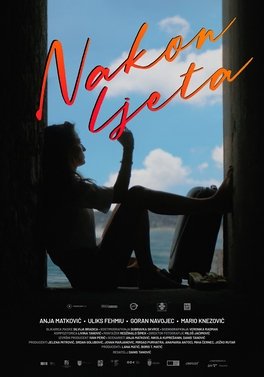

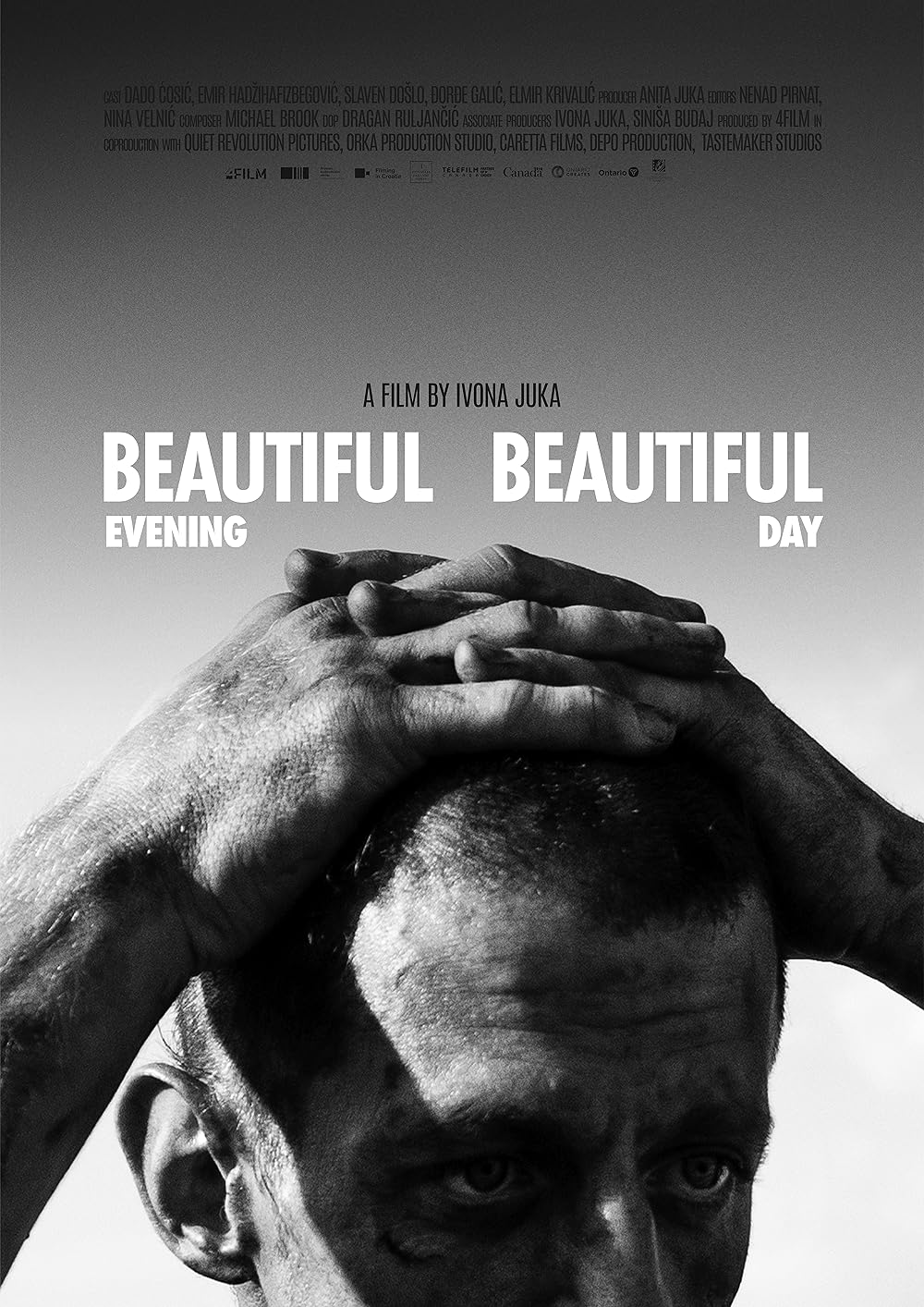
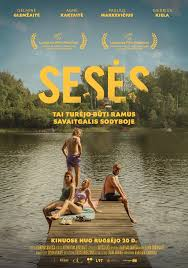




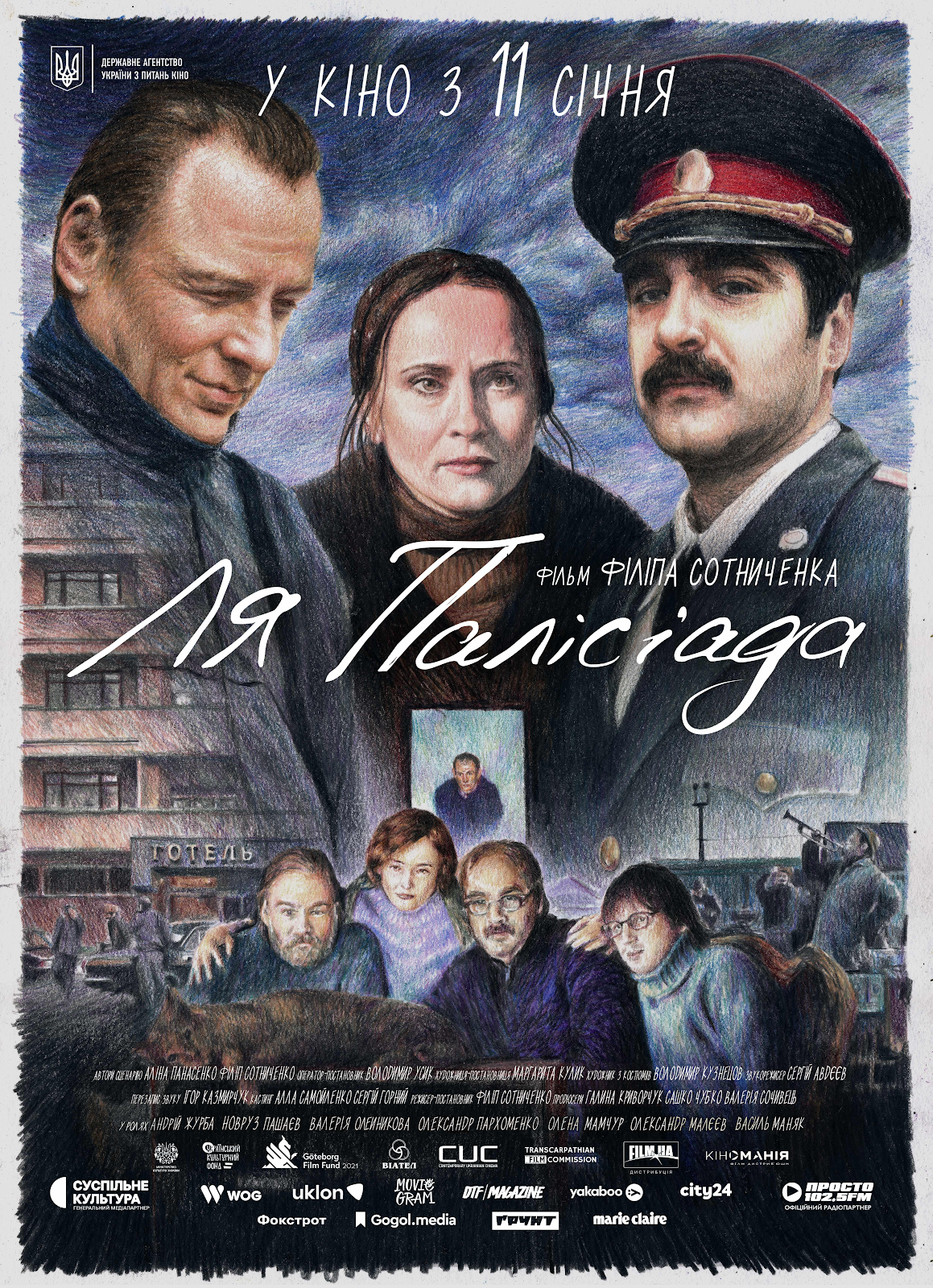


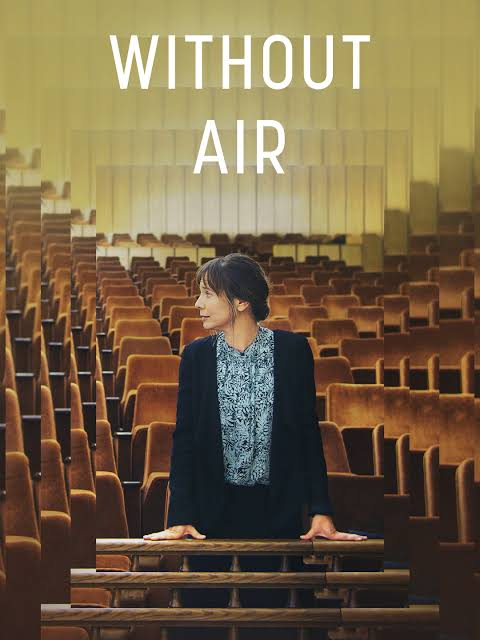

1 comment:
thank you for your post:)
btw...you wrote "Flow" instead of "Flee" :)
btw 2...next Czech submission will almost certainly be another historical drama - new Franz Kafka biopic by Agnieszka Holland. Unless it's in English but that's not likely. And unless it's very bad but they will probably choose it anyway..
Post a Comment